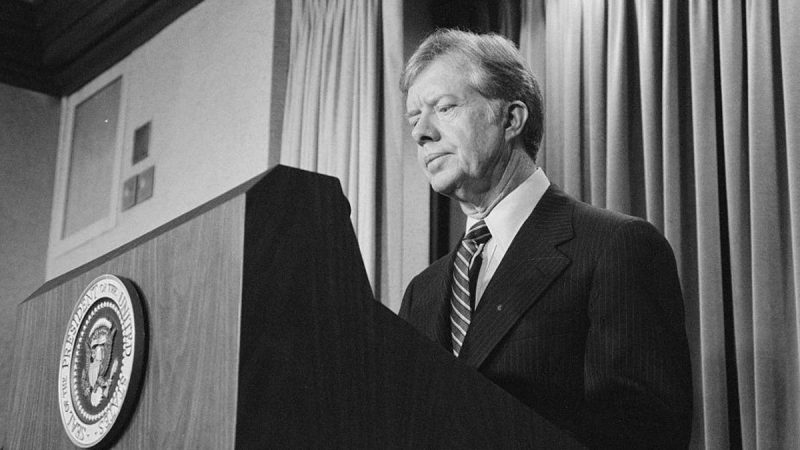Since the October 7 Hamas terror attacks, the world has been transfixed by the ongoing Israeli-Hamas conflict. Now we’ve also witnessed an extension of an existing 4-day ceasefire and global attention has shifted to the plight of the hostages.
On Tuesday, 12 more hostages were returned to Israel, bringing the total number of those released to 70. On October 7th, 240 hostages were kidnapped by Hamas. The hostages were from more than 40 countries. There were ten Americans in that total. Despite aggressive diplomatic efforts and direct intervention by President Biden himself, only four-year old Abigail Edan has been released.
When Hamas was rounding up hostages on October 7 during their barbaric terror attacks, they did not discriminate when selecting their victims. The hostages are from more than 40 countries. And it did not matter if you were a grandparent as old as 85, a ten-month-old grandchild or even if you were 8-months pregnant. Nothing protects you from Hamas’ kidnappers.
All of these people were intentional targets. Why? Because hostage-terrorism works.
After serving for two years in Iraq during the height of the Al Qaeda hostage-taking crisis, coordinating the diplomatic, intelligence, military, and law enforcement response to more than 400 international kidnapping incidents, here is my definition of hostage-terrorism:
Terrorist groups who use the criminal act of abducting and holding individuals against their will to announce their agenda, raise their profile, negatively influence, disrupt and degrade political will and the decision-making ability of their declared adversary.
Their hostages are used for the purpose of making public demands, increasing public awareness of their cause, raising funds by extorting ransoms and or forcing concessions from nation states and other entities.
Hamas is a proxy army of the mullahs in Tehran, who introduced the world to the original specter of hostage-terrorism with the 444-day U.S. embassy hostage crisis in Tehran from 1979 to 1980. Nightly newscasts focusing on the 66 Americans being held were a daily reminder of America’s inability to bring her citizen’s home; it cost Jimmy Carter his presidency.
Hostage-taking is how terrorist organizations negotiate with the West. Constant media coverage provides the oxygen fueling the speculation and highlights the non-stop attention on the hostages. While it importantly raises awareness of the kidnapped victims’ plight, it also raises their perceived value as a bargaining chip for Hamas.
The exact opposite result is the goal. Hamas should be answering to the United Nations regarding why they kidnapped unlawful combatants – pregnant women, the elderly and infants. Instead, Israel is on trial by negative world opinion as they try to ensure that Hamas cannot do it again.
It is time to get back to a coherent hostage policy based on historical precedents and not one pandering to wishful thinking.
Humanizing the hostages while minimizing their perceived worth to the hostage taker is critical. Having senior U.S. government officials, including the president, publicly admit his involvement in ongoing hostage negotiations does not help the situation and can potentially sabotage it and even hinder future hostage releases.
It is a far cry from the perceived, ‘the US does not negotiate with terrorists’ rule we once adhered to. While the aforementioned was never official US hostage policy, making no concessions was. From 2004 to 2006, coordinating hostage-recovery efforts in Iraq, the National Security Presidential Directive on United States Citizens Taken Hostage Abroad – U.S. hostage policy was:
‘The U.S. Government will make no concessions to individuals or groups holding official or private U.S. citizens hostage. The United States will use every appropriate resource to gain the safe return of U.S. citizens who are held hostage. At the same time, it is U.S. Government policy to deny hostage takers the benefits of ransom, prisoner releases, policy changes, or other acts of concession.’
In 2014, the Obama administration announced the exchange of an American soldier who deserted his post for five senior ranking Taliban and Al Qaeda leaders from the White House Rose Garden.
The president essentially announced to the world, ‘The US does negotiate with terrorists and the US makes concessions to terrorism…’
In 2016, on the same day the U.S. formally implemented the nuclear deal with Iran the Obama administration secretly arranged a plane delivery of $400 million in cash to Tehran to secure the release of four Iranian-American prisoners.
On September 12, the Biden administration released $6 billion to Iran in an American-Iranian prisoner swap.
Paying a Viking’s ransom to secure the release of hostages and achieve policy goals confirmed for Iran, the leading state-sponsor of terrorism, and their proxies like Hamas, that the U.S. is willing to pay the modern-day ‘Dane-geld’ or Viking tribute.
‘Dane-geld’ is a poem by British writer Rudyard Kipling highlighting the recklessness of paying off the Vikings with gold in what the modern world calls blackmail. The most famous lines are ‘once you have paid him the Danegeld/ You never get rid of the Dane.’
President Biden personally injected himself into the current hostage crisis. This raised the hope of ten American families expecting their loved ones to be in the first tranche of released hostages. To Hamas, it proved how invaluable holding Americans is to their survival strategy. All the president did was raise the price of Dane-geld for the remaining U.S. citizen’s release.
Only one American family is celebrating a reunion today.
Combatting hostage-terrorism requires efforts that are better kept in the clandestine shadows versus global press conferences.
Paying the ‘Dane’ only demonstrates on a global stage that the world can be held hostage by terrorist organizations forcing nation states to bend a knee to their demands for ransom, ceasefire, or humanitarian aid for ‘oppression’ they self-inflicted.
Like historical precedent in Iraq, countries like France, Germany, and Italy that paid out millions in ransoms to secure the release of hostages, it only puts a bigger target on their passport holders traveling in the region and the rest of the world.
It is time to get back to a coherent hostage policy based on historical precedents and not one pandering to wishful thinking.
The hope that paying millions in ransoms yesterday would not lead to paying billions today has led to the hostage crisis in Gaza.
As Kipling so wisely wrote, ‘You will find it better policy to say: –‘We never pay any-one Dane-geld/No matter how trifling the cost; For the end of that game is oppression & shame/ And the nation that plays it is lost!’
Making concessions to terrorism only encourages more of it.
Bowing to enemies who consider America the Great Satan only emboldens more acts of terrorism.


































